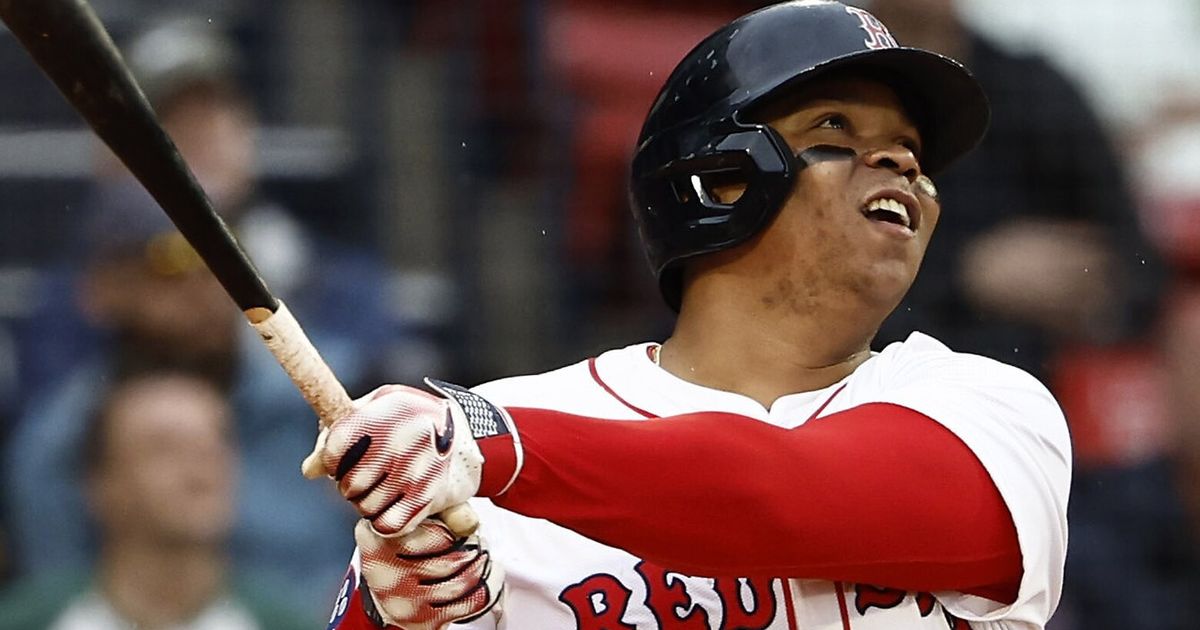Rafael Devers made a memorable debut in Major League Baseball against the Seattle Mariners on August 25, 2017, impressively hitting a 427-foot home run the following day at what was then known as Safeco Field.
As the Boston Red Sox visited T-Mobile Park this week, Devers was notably absent from the lineup; instead, he drew the interest of the San Francisco Giants. The Giants took a bold step by acquiring Devers, taking on a significant financial commitment to enhance their team—a move the Mariners have consistently avoided.
In a significant trade, the Giants sent two MLB pitchers and two promising prospects to the Red Sox in exchange for Devers, one of the most reliable players in baseball. Over the past five full seasons, excluding the abbreviated 2020 season, Devers, now 28, has maintained an impressive batting average, never dipping below .271 and registering an average of 149 games played, 31.6 home runs, and nearly 100 RBIs each season.
Typically, a player of Devers’ caliber, a three-time All-Star in his athletic prime, wouldn’t be up for grabs. However, after the Red Sox signed third baseman Alex Bregman to a three-year contract, they reassigned Devers, who showed reluctance to adapt to designated hitter or first base roles. While his batting prowess is undeniable, there are lingering concerns regarding his versatility and character.
The Mariners, however, are unlikely to pursue such high-profile trades, and financial hesitations underlie their strategy. With the Giants now committed to over $250 million of Devers’ 10-year, $313.5 million contract extension signed in 2023, the price tag is hefty for a player who may pose defensive challenges and potential conditioning issues. Yet, given his capability and durability, many see it as a bargain for San Francisco.
Imagining the Mariners making a similar investment is difficult. Sending four players—including two pitchers with ERAs of 6.47 and 4.56, plus two mid-tier prospects—to acquire one of baseball’s most dependable sluggers who currently ranks second in Major League Baseball in both games played and walks is a stretch for fans. Devers could have filled multiple gaps for the Mariners in a lineup needing reinforcement, easing the burden on Cal Raleigh and Julio Rodríguez for the foreseeable future.
Unfortunately for Mariners fans, the team’s management has shown a tendency to shy away from signing big-ticket free agents. Instead, they commit to drafting and developing talent, as evidenced by the recent contracts of Raleigh and Rodríguez. With the trade deadline looming, they are more inclined to make adjustments at that stage rather than pursue impactful acquisitions in the offseason.
While trades during the deadline can be unpredictable, especially for proven major-league hitters, general manager Jerry Dipoto recently acknowledged the team’s preparedness to identify needs and potential solutions. “We have put ourselves in a good position as we approach the final, we’ll call it, two months leading up to the deadline,” Dipoto stated on Seattle Sports 710 AM. “We have reached the point in the season where we have identified where our biggest needs are, and we are in the process… of identifying players around the league who we feel like can help us fill those voids.”
The Mariners remain on the lookout for potential hitters to bolster their roster. However, the reality is that proven stars may be more elusive than rental players, leading to a limited pool of viable trade targets as teams assess their own standings.
With evident batting struggles evident in a recent 2-0 loss to the Red Sox, where Seattle managed just four hits and struck out 15 times, it is clear that they need reinforcements. Star pitcher Logan Gilbert, despite a strong performance marked by 10 strikeouts, highlighted how crucial it is for both batting and pitching to click simultaneously.
While Devers could have provided the spark the Mariners desperately need, they must now find alternatives. The clock is ticking as they seek to address their offensive shortcomings.

